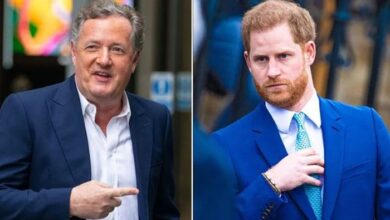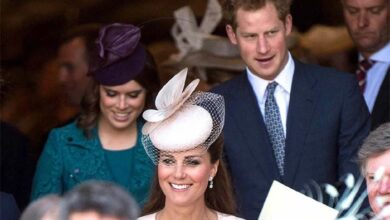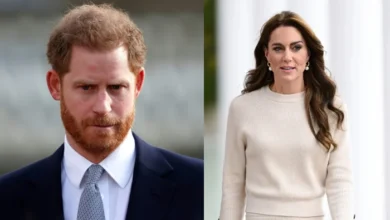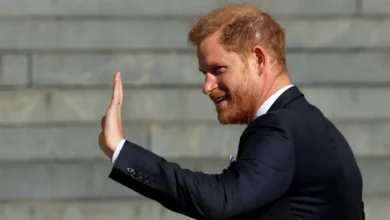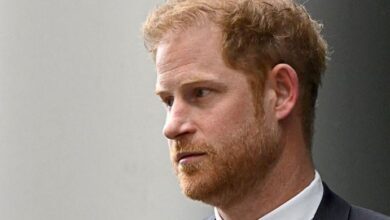Prince Harry’s Standing in the UK Questioned Amid Cold War with the King Charles
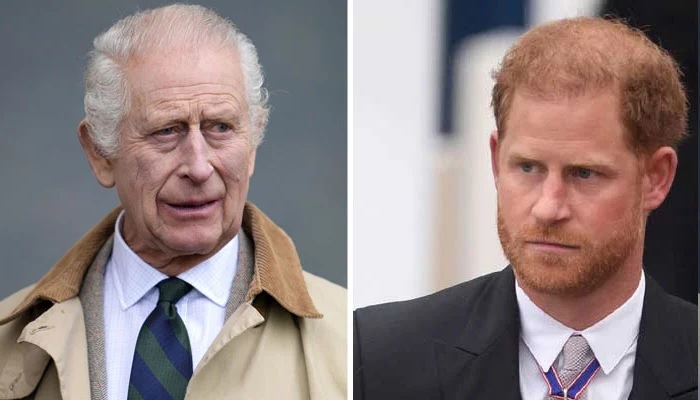
Experts have begun to question Prince Harry’s standing in the United Kingdom as tensions with the royal family seem to escalate into what some describe as a “cold war.” Royal commentator Daniela Elser has articulated these sentiments, pointing to the Duke’s diminishing presence on the royal website and suggesting a growing frostiness in the relationship between the Sussexes and the rest of the royal family.
In her piece for News.com.au, Elser delves into the implications of recent changes on the royal website, specifically the removal of key statements involving King Charles and the Sussexes. This alteration has fueled speculation about the depth of the rift between Prince Harry, Meghan Markle, and the rest of the royal family.
Elser remarked, “The palace has yet to comment on this latest curious website change however, really and truly, I ask you: Could their treatment of the Sussexes, long since having skedaddled to California to escape the clutches of Crown Inc, be any frostier?” This rhetorical question underscores the perceived distance and growing estrangement between Prince Harry and his family.
The royal commentator drew a dramatic parallel, suggesting that while the current situation lacks the intensity of a geopolitical cold war, it nonetheless bears some similarities. “There might not be a Gorbachev-like character lurking in the wings or the threat of a nuclear winter, but are we facing a new cold war here?” Elser asked. This analogy highlights the severe and potentially long-lasting nature of the current tensions.
Further illustrating the strained relations, Elser referenced a source close to King Charles and Queen Camilla, who indicated that the prospect of Harry and his family visiting Balmoral this summer was unlikely.
“The idea that Harry and the kids are going to descend on Balmoral this summer is wishful thinking. It’s all just very sad,” the source reportedly told the Daily Beast. This sentiment suggests a deep-seated sadness and resignation about the widening gap between Harry and the royal family.
Prince Harry and Meghan Markle’s departure to California was initially framed as an effort to escape the intense scrutiny and pressures of royal life. However, the subsequent developments, including their public statements and media projects, have only intensified the spotlight on their relationship with the rest of the royal family.
This ongoing saga has captivated the public and media, contributing to the perception of a “cold war” between the Sussexes and the royal institution.
The removal of statements involving King Charles and the Sussexes from the royal website can be seen as a symbolic move, reflecting the current state of affairs. It signals a formal distancing and possibly an attempt to redefine the royal family’s public narrative without the Sussexes at its center. This act of erasure further alienates Harry and Meghan, making reconciliation appear even more remote.
As for the impact on Prince Harry’s standing in the UK, these developments likely complicate his relationship with the British public and his role within the monarchy. His recent projects, including the tell-all memoir “Spare” and various interviews, have drawn mixed reactions. While some sympathize with his position and support his quest for autonomy, others view these actions as damaging to the monarchy and a betrayal of familial bonds.
In conclusion, the current state of Prince Harry’s standing in the UK and within the royal family appears fraught with tension and uncertainty. Daniela Elser’s commentary highlights the growing estrangement and the symbolic actions that underscore this divide.
As the Sussexes continue to navigate their new lives in California, the prospect of a thaw in relations with the royal family seems increasingly unlikely, leaving both sides to contend with the repercussions of this modern-day cold war.
